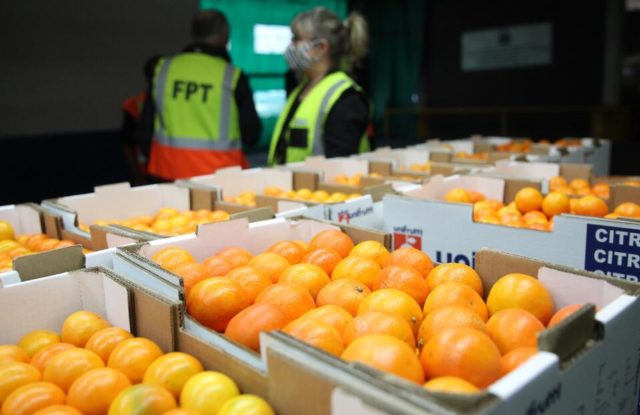The Special Citrus Growers’ Association Of South Africa (CGA) have expressed concern over proposed cold storage export requirements that could potentially deal the sector a major blow.
THE SPECIAL Citrus Growers’ Association Of South Africa (CGA) have expressed concern over proposed cold storage export requirements that could potentially deal the sector a major blow.
They say the proposed legislation would require exporting African countries to implement a mandatory cold treatment – 0°C to -1°C for at least 16 days – for oranges headed to the region.
The organisation said this week the European Union’s (EU) Standing Committee on Plant, Animal, Food and Feed (SCOPAFF) would discuss and, possibly vote on, new regulations on False Coddling Moth (FCM) which pose a major threat to Southern African orange exports.
Deon Joubert, the South African citrus industry’s Special Envoy to the EU explained: “When it comes to South African conventional oranges, only a portion of the crop will be able to withstand the new prescribed cold treatment temperatures. Furthermore, new provisions on the regulations which require “data loggers” from containers and a “measured pulp temperature threshold” are totally different to the current EU accepted FCM risk management system. These will require specialised and severely short supplied container equipment which will not be able to accommodate the huge volumes of fruit exported from South Africa to the EU.
“The mandatory cold treatment will also put a stop to all exports of organic and “chem-free” (non-treated) oranges to the EU including several popular varieties such as blood oranges, Turkey, Salustiana, Benny and Midknights. This is due to these products simply not being able to withstand the suggested cold treatment. Yet, these environmentally friendly and sustainable orange types have never recorded a FCM interception.”
He added that South Africa enforced a “rigorous risk management system”, which has been highly effective in protecting European production from the threat of pest or disease, including FCM, over the past few years.
“In this regard, when it comes to the 800,000 tonnes of citrus imports to the EU annually, FCM interceptions have been consistently low over the past three years – 19 (2019), 14 (2020) and 15 (2021) interceptions respectively. South Africa has also disputed six of its reported EU interceptions during last year’s season, as the overwhelming expert scientific reviewed evidence indicates the larvae reported was dead, which means it posed no risk.”
Joubert said interest groups, including growers in Southern Africa and importers from a number of EU countries such as the Netherlands, Germany, Belgium and France, lodged objections to the proposed regulations during the recent EU “Have your Say” public participation process.
Agbiz said the changes could pose difficulties for citrus exports.
“The EU is an important market, any difficulties would have a notable impact on our export activity. The South Africa citrus industry is export orientated, already experiencing difficulties in black sea region Russia and Ukraine where 12% of our citrus exports go to that region. Changes in regulation pose further difficulties for us. The challenges would be cost related and the potential impact on the volumes, our preference would be no changes to the current regulation.”
The Department of Agriculture, Land Reform and Rural Development (DALRRD) said it had not received any information about proposed amendments from the EU.
“As the department we have not received anything about any proposed amendments by the EU. Once received, we will engage the EU using our official communication protocols and we engage the Citrus Industry,” DALRRD spokesperson Reggie Ngcobo said.
Cape Times








